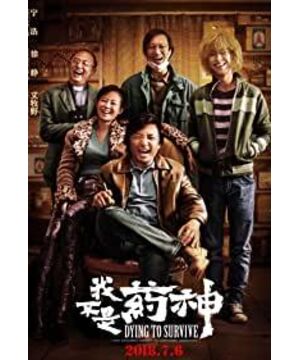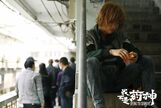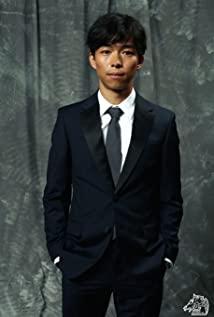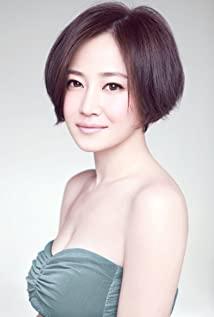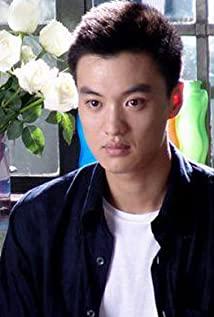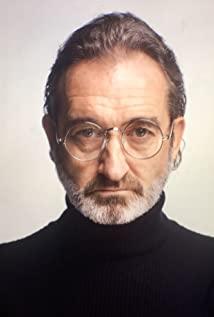There's a joke in the title, and it's not fair to compare "I Am Not a Drug God" to "Dallas Buyers Club." Jean-Marc Valet is of course much smarter than Wen Muye, and "Dallas" has also completely exploded "The God of Medicine" in all aspects. But that Oscar masterpiece is, after all, a story on the other side of the ocean, too far from the real life of Chinese people. "The God of Medicine" is different. It is a vivid representation of the worldly customs around us.
You can even see the shadow of "Schindler's List" in it. When Cheng Yong, played by Xu Zheng, was about to sell medicine again, he found out the list of patients from that year and asked Liu Sihui (Tan Zhuo) to help him contact him. The people present asked him: "How much are you going to sell this time?" Cheng Yong said decisively: "500". This scene in the factory, in terms of movement, editing, scene design and performance, is very much like Spielberg's black and white classic.
Because "I'm Not the God of Medicine" does have a certain peculiarity, although this article will focus on the film itself, it will inevitably talk about the Lu Yong Yao case.
"The God of Medicine" is a typical film whose social significance is greater than its artistic value, and its theme is the only magic weapon for it to win. When this topic was filmed on the producer's table, anyone could see its potential to become a hit. The legend and drama of this story, its depiction of the plight of chronic myeloid leukemia patients, its personal heroism, and its subtle sensitivity will all become the selling point of the film, ensuring its continued popularity.
Including Xu Zheng and Ning Hao is also an important blessing to this project. Xu Zheng's previous "The Players Behind the Scenes" was disappointing. Although the box office reached about 360 million, it was still crushed compared to "Later Us" in the same period. However, Xu Zheng stumbled in "The Players Behind the Scenes", and "The God of Medicine" stood up again.
"The God of Medicine" has all the elements that the audience likes, including the sense of humor of Ning Hao and Xu Zheng, the concept of suffering and reality revealed by the story itself. Indeed, this film will arouse a new round of attention to the chronic myeloid leukemia and Lu Yong drug cases, and will make some social issues re-emphasized, which is an undeniable positive significance of the film. On the other hand, the quality of the film itself, as well as the degree of its excavation in the subject matter, makes it not so impeccable.
For me, "The God of Medicine" can only be called the first half of a good film. As mentioned earlier, many people around me will subconsciously compare it to "Dallas Buyers Club", of course it can't be compared. If it is divided into five levels in terms of the adequacy and depth of the expression of the subject matter, "Dallas" has basically achieved the bottom, and "The God of Medicine" is probably the second level.
This isn't worth getting into. There are also quite a few films on relatively sensitive subjects that are hesitant to speak, and many of them can also leave a lasting and deep impression on people. In addition, it is undoubtedly one-sided to judge only by the degree of excavation of the subject matter. But "The God of Medicine" is far from "Dallas" in terms of expression and artistic effect, which is an undeniable fact. In any case, the story it presents seems so close, so real, that it naturally takes full advantage of its locality.
Essentially, this makes it look a bit like work at a time when the LGBTQ theme was on the rise, with the basic angle being a concern for the struggles of marginalized groups and a critique of unequal social rules. In addition, it follows the realism framework of making heroes, and in this way to formulate larger propositions. This coincides with many Korean films, which start from the perspective of a small person to show a common social problem. Not only that, but the film is very "Korean movie fan" in many aspects, such as serving Hua Dao. However, "I'm Not the God of Medicine" finally solved this problem through an extremely harmonious method, but it lacked a lot of lingering threads, and resolved the tangled situation similar to the warm and cold intertwined in Korean movies.
Because of the material, "I Am Not a Medicine God" naturally has a very strong seriousness, but it is not really an art film or a purely realistic film. The main reason lies in its grasp of a group of small characters, which completely follows the paradigm of genre films. Cheng Yong's transformation from a god oil shop owner who only wants to make money to a selfless and benevolent person who sincerely helps patients, is what John Truby calls "from adult to leader, from cynicism to active dedication" The principle of hero transformation can also be seen as The progression of "self, family, community" in the six-level theory of the protagonist Cynthia Whitcom. And the implementation is very neat, with almost no author's own rewriting or expansion.
We've seen this type of character arc hundreds of times in mainstream movies like Hollywood. But it still works, and still impresses us, because it is based on a long study and speculation on audience psychology, almost empirically. This foundation is empathy, and because of the existence of human emotions in general, movies can use these stereotyped characters to empathize with the audience.
However, "The God of Medicine" still gives people a shallow and stereotyped feeling in terms of characterization, with a functional meaning in it. Cheng Yong as the protagonist, coupled with Xu Zheng's performance that is still in place, can be regarded as a relatively full portrayal of genre characters. Wang Chuanjun's Lv Yiyi, Zhang Yu's Huang Mao, Tan Zhuo's Liu Sihui and Yang Xinming's Pastor Liu, have been able to stand up through several blocky emphasis (the pastor is much weaker, and most of the time takes on the secondary role). Laughing point), but it seems to be too much, and it is inevitable to fall into the symbolic shaping of characters.
"The God of Medicine" is not bad at the stage of story building. Although it doesn't have any novel narrative techniques, it has a good sense of proportion and is enough to make people watch it with relish. The appearance of several main characters also seems to be scattered. As a result, after the plot appeared a year later, the author of the film seemed to be unable to hold his breath any longer, and was eager to export all the struggles, helplessness, hardships and hesitations of marginal groups to the audience. From Lu Yiyi, to Huang Mao, to Cheng Yong himself, the arrangement of several sensational paragraphs is quite radical, unreserved, and very dense. Until Cheng Yong was finally arrested and brought to justice, the video effect of the ending of "The Medicine Man on the Ten-mile Street" with the main melody soundtrack was simply terrifying. To be more extreme, it already belongs to "dog blood".
Therefore, the biggest problem of the film is that it is not restrained enough, especially in the second half, which hardly gives the audience space to think. In other words, the content and a lot of emotional catharsis expressed in the latter paragraph just want to leave the audience with a kind of thinking result, and the inner child is still a simple trend of bifurcating events. For a complex and serious source material, especially real events in the real world, such a treatment of the film is debatable. Not to mention the relationship with reality, just the artistic effect presented by this method has also lowered a work that was originally more advanced.
Therefore, "The God of Medicine" can only be regarded as a half-good film for me, because I saw that the author of the film finally sacrificed the rhythm and charm of the narrative due to the urgency of expression. His form is basically procedural, and there is no creative method. The characters are vivid, but it is difficult to say how unique and deeply rooted. The author's point of view is too early and too full, but still lacks depth. The story is heart-wrenching and easy to empathize with. In particular, there are a lot of sensational scenes in the back, which have a strong sense of twist. As for the sensitivity of the subject matter, it is actually an illusion - the incident itself has already been widely reported, and coupled with such a well-organized book, there is a lot of room for trial.
Its ice and snow is smart not only in evading the red line of censorship, but also in the way it chooses to cook the story. The regrets raised in this article, which the author may not have been unaware of, have nonetheless been done. This is the safest way to do so, both at the market level and in terms of project development itself. On the one hand, some "less demanding" viewers don't care about it at all, they just need to see an interesting story and that's enough. Therefore, "The God of Medicine" naturally has a highly topical story. It only needs to be told in a responsible manner to make it comfortable for the majority of the audience to watch. At the same time, in order to squeeze the box office space, it can't be too heavy, and it has to add some entertainment. All the materials, all together - isn't this the kind of "work" of the old master's craftsmanship.
Therefore, "I'm Not the God of Medicine", which has been well-received before it was released, is undoubtedly a budget-conscious movie. It certainly touched me at some point, but it didn't make it unforgettable. It's a good movie, but it's hard for me to admit it's a good movie.
To expand on the real story behind the film, it has nothing to do with the film itself. "I'm not the God of Medicine" portrays Lu Yong as a good man and a hero, basically the same as the mainstream media a few years ago, but the reality is not the case. The first person to purchase generic drugs in India, first of all, unlike the film, he is also a chronic myeloid leukemia patient, and Cheng Yong in the film is just an ordinary Shenyou shop owner. Secondly, the drug in reality is called "Gleevec", and it was changed to "Glenin" in the film. The real situation is that Lu Yong has successively purchased two kinds of imitation drugs from India.
The first drug was Veenat from Natco, which he purchased in 2004, at 4,000 yuan per bottle. The medicine in the film should be this kind of medicine. This medicine has the same effect as the high-priced genuine medicine taken by domestic patients. Therefore, he is regarded as saving the lives of tens of thousands of patients and becoming a hero in the slow particle circle. But seven years later, he suddenly replaced the drug he bought with Imacy from Cyno. Later, because there were too many buyers of this drug, Lu Yong was arrested for buying bank cards online.
When the "Lu Yong counterfeit drug case" was exposed, it was not long after "Dallas Buyers Club" came out, so in fact, before the film was adapted, many people likened Lu Yong to China's "Dallas" Buyers Club".
The problem is with this Imacy. If Veenat is a genuine imitation drug, a real drug that has been forcibly labeled as "fake drug" by Chinese law, then this Imacy is very suspicious.
First of all, this drug is not available in pharmacies in India, and the address of the pharmaceutical company Cyno is either not found, or it is not right after it is found. Some pharmacy owners also say that this is a "bad company". Secondly, at the end of March 2017, the drug was taken to the Institute of Microbiology, Chinese Academy of Sciences for testing. The test results in May showed that the ratio of the active ingredient imatinib per 100 mg of the drug was about 55% and 55% of that of Gleevec, respectively. 83%. Add to that Cyno's cluttered data, bizarre remittance methods, and vague production licenses. All of this means that Imacy is likely to be a real and fake drug.
However, because Lu Yong has been deified in the patient circle, and chronic myeloid leukemia patients and their families generally lack channels to understand, resulting in serious asymmetry of information, almost no one questioned the new drug Imacy he purchased. In June last year, GQ released a special report "The Suspicious "Chinese God of Medicine", a very high-level article that was also poorly received.
Reality is always more complex and twisted than works. Compared with "The God of Medicine", I want to see how the investigative writing process of this report will be told by the film.
View more about Dying to Survive reviews


